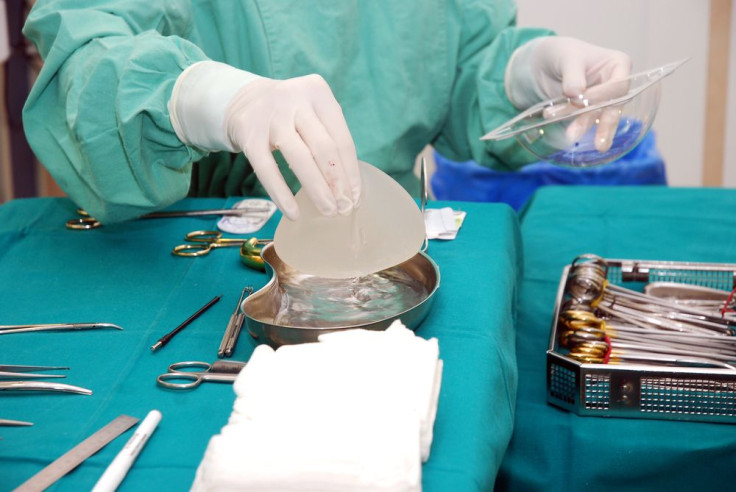Breast Implants In France To Carry Cancer Warning: Researchers Find A 'Clearly Established Link'

Following France’s National Cancer Institute finding a “clearly established link” between breast implants and a specific type of cancer, the country will now order all breast implants to come with a cancer warning. This announcement came after 18 cases of anaplastic large cell lymphoma were directly linked to women with silicone breast implants since 2011.
Anaplastic large cell lymphoma (ALCL) is a type of non-Hodgkin’s lymphoma that affects the blood. The link between breast implants and this form of cancer is extremely rare, so French officials have urged women who already have the implants not to remove them, the Daily Mail reported. Given the severity of the cancer in the few women who do develop it, French officials felt it necessary to inform women of all the possible risks associated with the surgery.
ALCL is extremely rare, affecting around one to six in every three million women who undergo breast augmentation, Medical News Today reported. However, a study conducted by researchers from Cambridge University in the UK found that nearly all cases of ALCL in breasts occurred in patients who had undergone breast augmentation, suggesting a link between the two. Although it’s not clear why silicone breast implants can sometimes cause cancer, the Cambridge investigation did shed some light on the mystery.
"It's becoming clear that implant-related ALCL is a distinct clinical entity in itself,” Dr. Suzanne Turner, lead researcher of the Cambridge study, told Medical News Today. “There are still unanswered questions and only by getting to the bottom of this very rare disease will we be able to find alternative ways to treat it.”
Breast implants are a very popular surgery, with Dr. Diana Zukerman, president of the National Center for Health Research, explaining that in 2013 alone 300,000 American women opted for the operation. Of these women, around 80 percent undergo breast enhancement for cosmetic reasons while a further 20 percent have breast implants following breast cancer.
This is far from the first time that breast implants have been implicated in causing a health hazard. In 2011, French firm PIP caused global hysteria when plastic surgeons reported an abnormal amount of the implants rupture, the Daily Mail reported. It was later found that the firm had been manufacturing these breast implants using industrial grade silicone intended for use in mattresses.
The implants were subsequently found faulty and banned from use. Women who had already received the implants were advised to have them removed, although European health officials found no medical or toxicological evidence to back this advice.



























